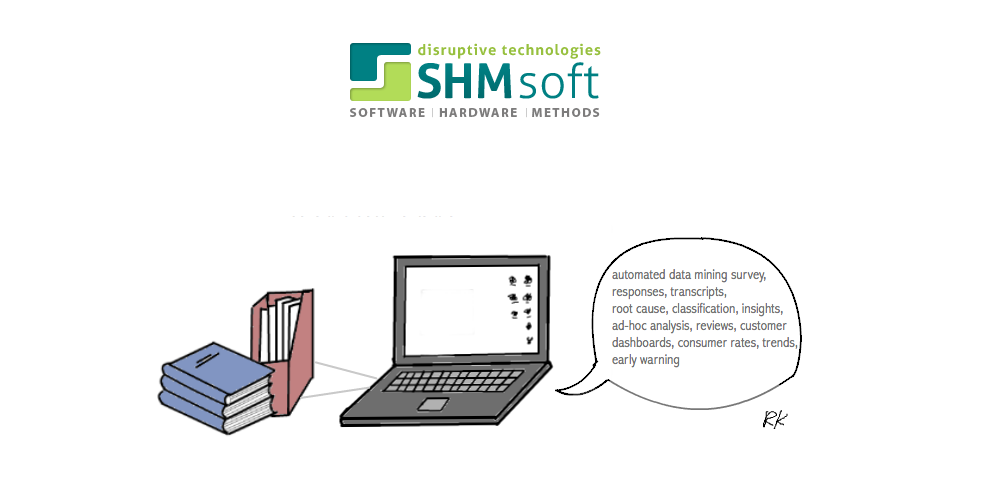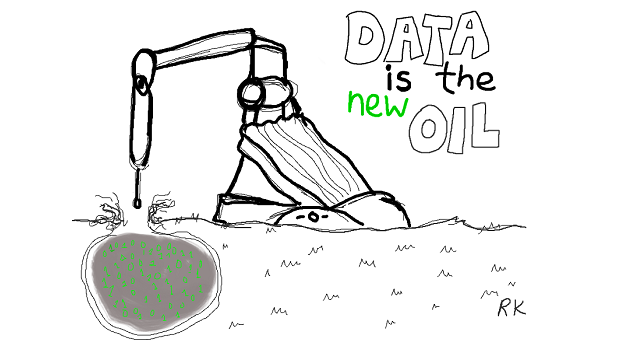* – This article has been archived and is no longer updated by our editorial team –
Below is our recent interview with Mark Kerzner, President at SHMsoft:

Q: Mark, tell us something more about SHMsoft and its history?
A: SHMsoft was incorporated in 1999 and initially was a vehicle for my contract programming work. But, by 2011, I already was very interested in eDiscovery. In short, eDiscovery is that part of a lawsuit where parties produce, on request, all documents related to a particular lawsuit. This requires searching all data, in all formats. It is a fascinating technical problem for which I had to use Big Data, Hadoop, Spark, etc. So, by 2011, I already did my two eDiscovery systems for others; my next one was going to be an open source one, which I would do for myself. That was FreeEed.
Q: You’ve recently announced your latest offering – a complete eDiscovery application for Blockchain; could you tell us something more?
A: FreeEed stands for Free Electronic Evidence Discovery. It is the only open source solution for eDiscovery and the only free one. Usually, eDiscovery is quite expensive, in the thousands or tens of thousands of dollars at the very least; this makes FreeEed quite popular. In the years that we kept working on FreeEed, it led SHMsoft to become a fledgling startup, which received innovation awards. Then it led us to be invited into the Memex program under DARPA, and it also was the beginning of our Big Data and Machine Learning training company, Elephant Scale.
 Recommended: Vokkero Delivers A State Of Art Communication System That Enables Soccer Referees To Communicate In Real Time
Recommended: Vokkero Delivers A State Of Art Communication System That Enables Soccer Referees To Communicate In Real Time
Q: What is FreeEed? Can you give us insights into its features?
A: So what is FreeEed? There are really two products here: processing and review. Processing ingests all of the gigabytes and terabytes of data, in thousands of different formats, that have been collected as a result of an eDiscovery request. It extracts the information of interest to lawyers (called metadata) as well as text. The review part allows to search the massive body of documents, finding those that are of specific interest, marking them with labels, and further producing them to the requesting party.
But FreeEed is not only for lawyers. We used it for all kinds of data investigations at DARPA, and it is extensively used by researchers and data analysts. We are always looking for more ideas on using the software and implementing these ideas, be it specific ways of doing search or applying Machine Learning.
Q: FreeEed tool is capable of reading and searching the Blockchain; can you provide some real word use-cases that we can expect to see?
A: This is how we came up with an idea to add Blockchain reading capability to FreeEed. By itself, Blockchain is not searchable. It is pretty slow: it takes 10 minutes for Bitcoin to write a new block into its Blockchain. The Ethereum Blockchain is faster: 7 seconds per new block. Still, this is not in the hundreds of thousands of transactions per second that many modern applications deliver. Reading and searching Blockchain is a completely different story: today, there are no provisions to read the content of a Blockchain for any purpose other than the needs of the specific application itself.
Think of it: a secure, distributed database with no language of querying it! And if you want to do text searches in Blockchain, you might as well forget about it. Meanwhile, there are literally thousands of applications where people might want to know what it is that you store so securely. Let us start with eDiscovery itself. Databases in general are hard for eDiscovery, and Blockchain would be impossible.
Next – think of all smart contract applications that store documents. Again, there is no way to search these documents. Recently I came across a smart contract application that stores wills, trust documents, and other legal vehicles. This app is for the people to make sure that their instructions will be followed. But after the will stored in the Blockchain, how are you going to read it? Moreover, to search the documents?
This is where FreeEed comes in. Currently, FreeEed picks up a range of blocks from Blockchain, as commanded by the users. There are plenty of tools that download Blockchain content, such as the tool called ‘geth’ which is used to build Ethereum smart contracts. I am sure that what we have done is just the beginning.
 Recommended: 6River Systems Raises $25M In Series B Funding Round, Announces Team Expansion
Recommended: 6River Systems Raises $25M In Series B Funding Round, Announces Team Expansion
Q: What are your plans for the future?
A: Once enthusiasts discover FreeEed for Blockchain, then will start using it and asking for more features. We, in turn, want to add analytics and Machine Learning. We have recently switched our backend search engine to Elasticsearch. With Elasticsearch, you get two more open source tools, Logstash and Kibana. With this, the opportunities are literally unlimited. I believe that FreeEed for Blockchain, perhaps in some modified form, will become a standard tool of a Blockchain developer.
Activate Social Media:


